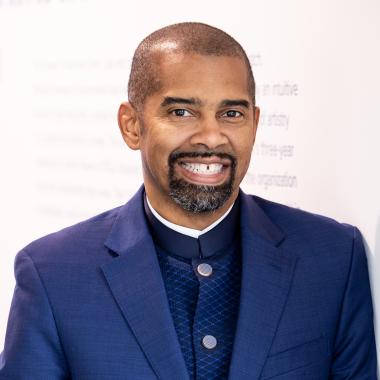Solidarity, Not Charity in Philanthropy
The Bay Area is frequently envisioned as a flourishing hub. In the collective imagination, the advancements of Silicon Valley are lauded as leading the world towards growth and innovation. And yet, the Bay Area has the third largest income disparity in the nation. This extreme wealth gap and income disparities are very much stratified by race and gender with Black and indigenous Bay Area residents making on average at least a half of their white counterparts.
With concentrated generational wealth, in comes philanthropy with its good intentions and complicated history. At its best, philanthropy can play a major role in redistributing resources back to historically marginalized communities. We believe this redistribution is possible if philanthropy rejects a charity model and instead embraces a solidarity model.
At American Leadership Forum and Northern California Grantmakers, we cultivate learning spaces for those with access to institutional resources or generational wealth to show up in alignment with their values. We offer support for people in philanthropy to identify how our personal liberation is inherently linked while offering tangible tools and practices to move philanthropy as a collective.
First, let’s get honest about the historical context we are operating in. Philanthropy exists as a result of capitalism and was formed through centuries of slavery, colonization, and displacement. The systems are designed to extract resources, privatize wealth, and centralize power and control of said resources. The systems are successfully doing exactly what they have been designed to do.
To disrupt these systems, we need to reimagine charity principles in philanthropy to the following solidarity practices:
- Moving long-term, general support funding to grassroots organizing: Those closest to the systemic problems are closest to co-creating solutions to freedom. Let’s get out of their way and move resources for their ideas to take root and flourish.
- Building a culture of accountability and interdependence in philanthropy: No one does anything alone. Change happens at the speed and depth of relationships. We need each other as accountability partners. Let’s be honest about our failures, learn from them, and organize together. This culture is currently underway in a partnership between ALF and the Silicon Valley Community Foundation. We are in our third year of facilitating monthly dialogue with local leaders to promote leadership for racial and economic equity in Bay Area foundations. You can learn more about the dialogue here.
- Engaging in deep personal and collective self-reflection: We can only shift our practices and transform when we take account of our own our role/responsibility in building that shared future. NCG offers Communities of Practice, intensive cohort-based learning for hundreds of philanthropy practitioners at every step of their journey so they can build individual and collective accountability. Learn more about our Communities of Practice here.
- Mobilizing resources and power back into movements and community-led infrastructure: Philanthropy can do this by creating participatory and democratic grant-making and investment structures.
Charity connotes power or resources granted from the top to the bottom. Solidarity recognizes the mutuality and agency of all beings involved. To move from charity to solidarity means affirming the deep dignity and power of historically marginalized communities. In philanthropy we are not doing a service to movement leaders and community members by moving resources to them, they are doing a service for us by reclaiming wealth and capital that has been historically extracted and denied to them. We’ll know we made it if the Bay Area becomes a flourishing hub for resource redistribution and wealth reclamation. We can and we must build that future in our lifetime.


